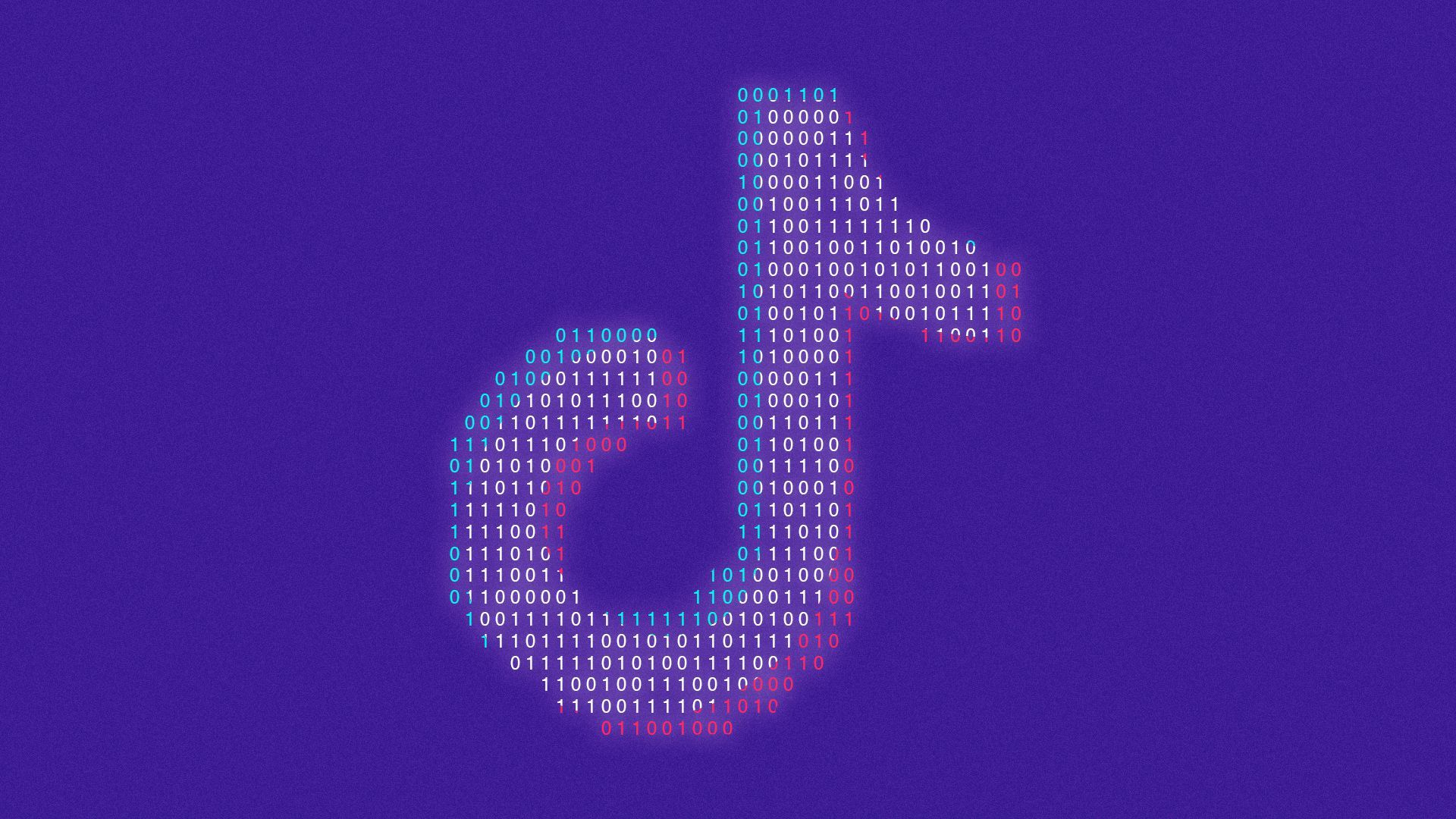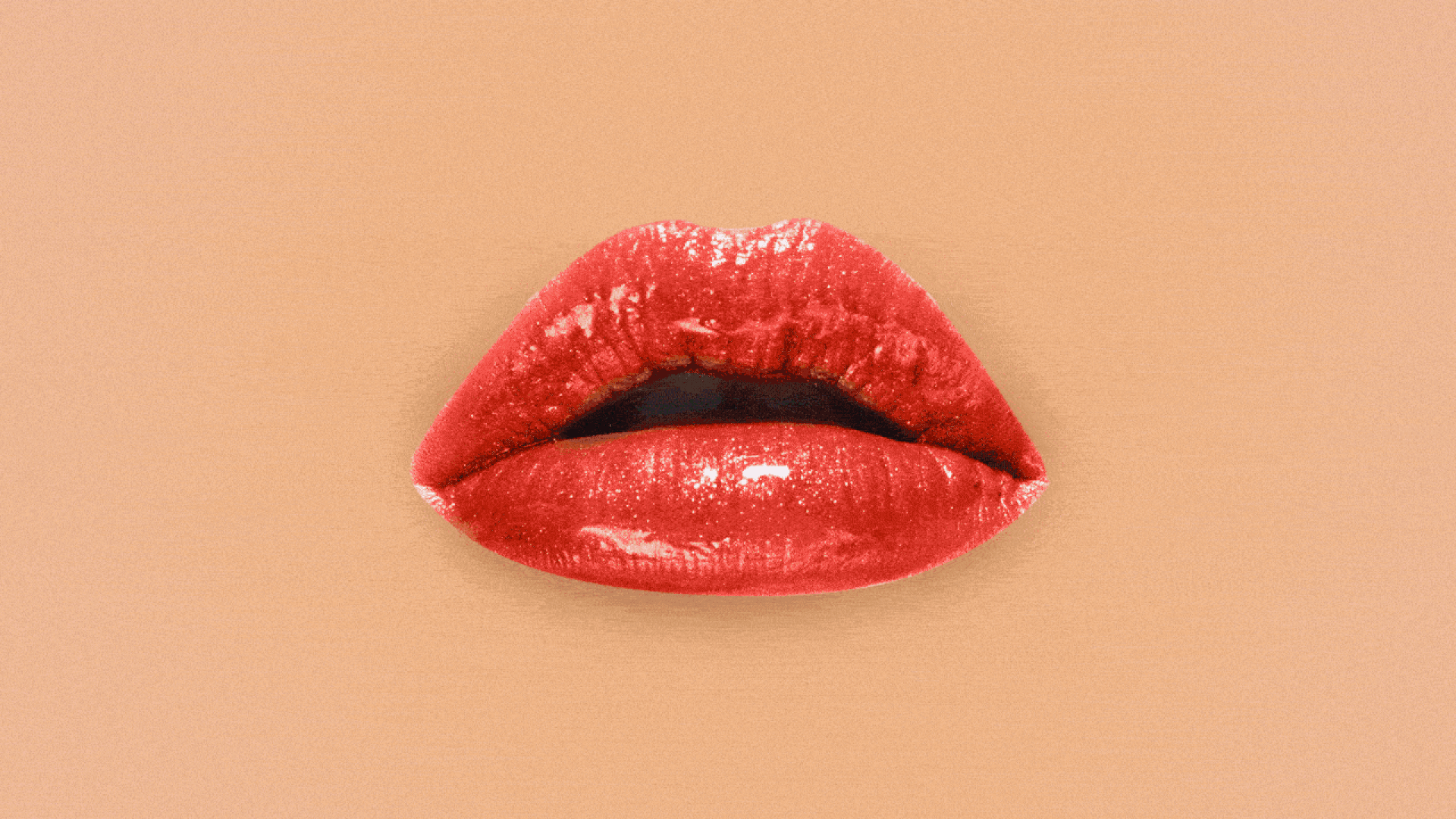Filter frenzy | Monday, March 21, 2022
| | | | | | | Presented By Emergent BioSolutions | | | | Axios Finish Line | | By Mike Allen, Erica Pandey and Jim VandeHei ·Mar 21, 2022 | | Mar 21, 2022 | | Welcome back. Situational awareness: We want to be a source of clear, concise answers to your questions about the news and the future. From time to time, we'll demystify the complex tech or trends in our world by bringing you stats and expert analysis. Smart Brevity™ count: 698 words ... 2½ minutes. | | | | | | 1 big thing: How to think smartly about TikTok |  | | | Illustration: Aïda Amer/Axios | | | | Never has the world seen a social media app spread more wildly — or an algorithm that anticipates your desires more precisely — than TikTok. Why it matters: It's hard to find a kid who's not mindlessly scrolling this never-ending stream of short videos. Two-thirds of U.S. teenagers (63%) are on TikTok, according to the market-research firm Forrester. - TikTok hit 1 billion global users in five years — far more quickly than nearly every other global social media network in history.
- The app knows young kids are on: There's an "Under 13" setting.
How it works: TikTok's magic lies in its algorithm, which instantly spots what you like and feeds you more and more of it. There are consequences to letting the app in on your conscious and subconscious desires. - Amy Poehler has said her "For You" page — TikTok's main personalized feed — knows she's having a bad day before she does.
Here's how TikTok spread like wildfire, according to Axios Media Trends author Sara Fischer: - Hyper-personalized: Your TikTok feed is weighted toward topics that interest you and that you engage with, rather than being biased toward famous people or big brands. So your trends become not just part of how the algorithm sees you, but how you see the app.
- Fresh faces: From the get-go, TikTok prioritized quality over who was posting — super-different from other platforms, which boosted celebrities. "Anyone could become viral overnight," Sara told us. "You had 'nobodies' making millions of dollars."
- Like TV, not social media: Unlike other feeds, you're not inundated with people you know. On TikTok, you determine your feed by what you gobble up.
- Endless scroll: You can be as passive or interactive as you want. Other feeds want you to constantly comment, like or share. On TikTok, you keep watching and the algorithm feeds you a bottomless buffet.
Beware: This insanely engrossing app has distinct national security implications. It is owned — and can be influenced — by China, home of its parent company, ByteDance. - The app has been caught censoring videos that Beijing doesn't like — such as mentions of Tiananmen Square or Tibetan independence.
- TikTok says it doesn't share its data troves — including information on America's kids and military users — with China. But that's hard to verify, and there's no telling what could happen in the future, though TikTok is nearing a deal to store U.S. user data with Oracle, out of China's reach.
The bottom line: TikTok can be a fun and creative outlet. But people — especially parents — need to understand the app's soaring popularity and have conversations about how to use it safely. |     | | | | | | A message from Emergent BioSolutions | | We Go to create a world that's prepared and protected | | |  | | | | Emergent maintains a critical role in the ongoing opioid crisis. We're developing emergency rescue medications that can help reverse an opioid overdose. It's just one of the ways we defend people from things we hope will never happen. Learn more about Emergent's protections. | | | | | | 👩 Fake beauty |  | | | Illustration: Aïda Amer/Axios | | | | Important: One ominous part of TikTok — and Instagram and Snapchat — is the proliferation of beauty filters, which subtly and realistically make you look more attractive. - Think fuller lips, thinner faces, lighter eyes and even the appearance of makeup.
Why it matters: These filters promote a certain beauty standard — and can quickly erode someone's sense of self-worth and confidence, especially when it comes to young people. Case in point: Beauty filters are usually a choice — users can switch them on and off. But a bug on TikTok left users stuck on a beautifying effect, MIT Tech Review senior editor Abby Ohlheiser reported last June. - The filter, which couldn't be switched off for some days, was forcibly altering people's appearances when they made videos. TikTok eventually addressed the bug.
- But, as Ohlheiser notes, even a temporary glitch can cause great psychological harm when an app has 1 billion users.
The big picture: If someone looks even a few percentage points better, they can get hooked on apps and filters, experts say. |     | | | | Thanks for reading. Please invite your friends to sign up here. |  | It's called Smart Brevity®. Over 200 orgs use it — in a tool called Axios HQ — to drive productivity with clearer workplace communications. | | | | | | Axios thanks our partners for supporting our newsletters. If you're interested in advertising, learn more here.
Sponsorship has no influence on editorial content. Axios, 3100 Clarendon Blvd, Suite 1300, Arlington VA 22201 | | | You received this email because you signed up for newsletters from Axios.
Change your preferences or unsubscribe here. | | | Was this email forwarded to you?
Sign up now to get Axios in your inbox. | | | | Follow Axios on social media:    | | | | | |







No comments:
Post a Comment